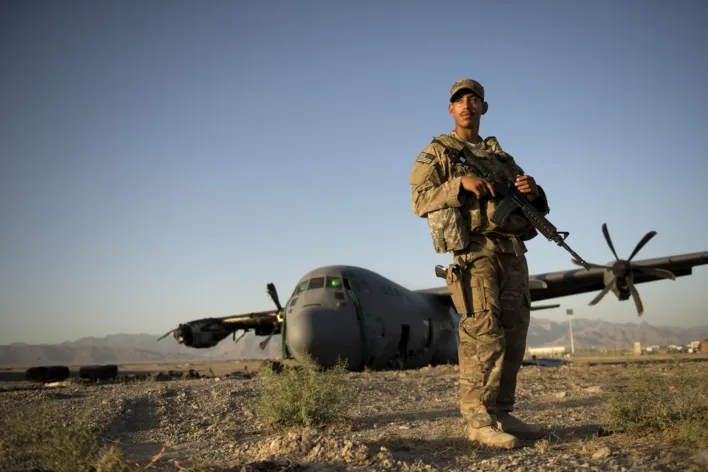Deployed Troops Face Reduced Food Allowances

Military members deployed overseas face plenty of potential financial hardship. It’s difficult enough to juggle personal finances, a deployment, and family life. But junior enlisted troops are typically the first to suffer when that deployment brings additional financial hardship.
Federal lawmakers want to fix deployment regulations that (at press time) erase hundreds of dollars in food allowance money for those deployed.
Reduced Food Allowances for Deployed Troops
Troops who spend even a single day in an eligible combat zone can have all their pay and bonuses for the entire month excluded from taxable income.
However, not all overseas deployments qualify for that extra financial help. Because of regulations requiring the government to take back BAS from deployed troops in some situations, being sent overseas or to a training environment could be a bigger hardship.
BAS Policy Problems
The chief complaint? Take-home pay for many deployed troops is lower than when serving at home because of a maze of rules that govern when a service member can qualify for the Basic Allowance for Subsistence or BAS.
BAS is meant to offset a military member’s personal meals in situations where an on-base dining facility is not accessible. BAS covers the servicemember’s individual meals in such cases and is not intended to offset the costs of feeding a family.
Because of that distinction, when troops are sent overseas, deployed, or mobilized to serve in hostile fire zones, troops are required to pay back approximately $400 in meals because they are eating military-provided meals.
The catch? That money is taken even if the troops deployed don’t have access to a military dining facility.
That payback is motivated by a desire to recoup BAS funds in circumstances where the servicemember has access to military meals, but taking the allowance back in whole or in part creates a situation where a forward-deployed service member could earn less while risking more.
Does that sound fair?
Auto-Deducted BAS?
The Department of Defense claws that BAS money back through an automatic deduction from troops’ pay.
Even with other military incentives such as hostile fire pay and tax exemption for those serving in combat zones, some sources estimate a soldier, sailor, airman, or Marine deployed in a combat zone could mean the loss of some $200 a month.
Add to that the costs of child care, insurance, housing, and transportation for the family members left behind and you can see why there’s growing concern over the financial compensation for junior enlisted members.
And let’s not forget that single service members without dependents don’t qualify for the same dollar amounts for certain benefits as their married counterparts do.
Is the Federal Government Doing Anything to Help?
As Army Times acknowledges, “The subsistence allowance rules are an issue for most overseas troops,” and at press time, the House Appropriations Committee is investigating the issues raised by BAS reductions and similar circumstances.
Army Times also reports members of the House Armed Services Committee “are reviewing a host of stipends and bonus pays as part of their work on next year’s annual defense authorization bill, with a focus on financial problems facing junior enlisted troops.”
Army Times reports that “plans for reforms are expected in coming months” but some remain skeptical. At press time there is still no government budget and lawmakers can’t agree on the basic concepts of a fully funded government. How can they get down to the details of problems like the BAS issue?
And, at press time, that remains to be seen and the BAS issue is just one detail among many those in Washington have to find a bipartisan compromise to fix.
Related: Active Duty Military Benefits Guide
About the author
Editor-in-Chief Joe Wallace is a 13-year veteran of the United States Air Force and a former reporter/editor for Air Force Television News and the Pentagon Channel. His freelance work includes contract work for Motorola, VALoans.com, and Credit Karma. He is co-founder of Dim Art House in Springfield, Illinois, and spends his non-writing time as an abstract painter, independent publisher, and occasional filmmaker.


